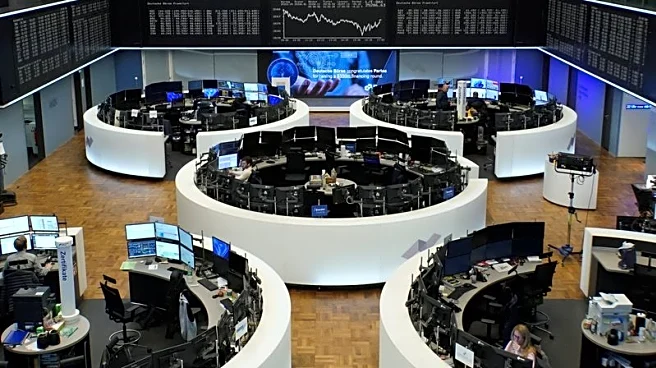What is the story about?
What's Happening?
Senator Chuck Grassley has raised concerns over the use of artificial intelligence in judicial opinions after two federal judges, Judge Julien Neals of New Jersey and Judge Henry Wingate of Mississippi, withdrew orders due to inaccuracies attributed to AI-generated content. These orders contained fabricated citations, misattributed cases, and references to non-existent parties. Grassley has sent letters to the judges, emphasizing the need for integrity and accuracy in judicial rulings, and questioning the use of AI tools in drafting these opinions. The senator's inquiry seeks to understand the extent of AI usage in the preparation of these judicial documents and the processes in place to ensure factual accuracy.
Why It's Important?
The issue highlights the growing concern over the reliability of AI in legal settings, where accuracy is paramount. The potential misuse of AI in drafting judicial opinions could undermine public trust in the legal system and affect the rights and obligations of litigants. This situation underscores the need for clear guidelines and oversight on the use of AI in the judiciary. The outcome of Grassley's inquiry could lead to policy changes or the development of best practices for AI usage in legal contexts, impacting how technology is integrated into the judicial process.
What's Next?
The judges have been given until October 13 to respond to Grassley's inquiries. Their responses could influence future regulatory measures regarding AI in the judiciary. Depending on the findings, there may be calls for stricter oversight or even a reevaluation of AI's role in legal proceedings. The legal community and policymakers will be closely watching the developments to ensure that AI tools are used responsibly and do not compromise the integrity of judicial decisions.
Beyond the Headlines
This incident raises broader questions about the ethical use of AI in sensitive areas such as law. It highlights the need for a balance between leveraging technology for efficiency and maintaining rigorous standards of accuracy and accountability. The situation also reflects a cultural shift as traditional institutions grapple with integrating advanced technologies while preserving their foundational principles.















